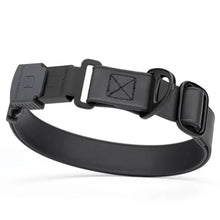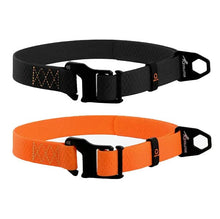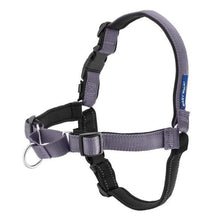Where Do Police K9s Come From?

Police and military dogs are mostly bred and trained in facilities in Germany, The Netherlands, Belgium, The Czech Republic, Slovakia, France, and the USA. Though a lot of countries have their own facilities around the globe, the previously mentioned nations supply most of the world with future Police Service Dogs. How they are trained depends largely on what their specific task is.
In general, police use K9 companions for 4 jobs.
- Finding people
- Apprehending people
- Finding drugs
- Finding explosives

The type of dog used often depends on the kind of work the K9 will perform. Any dog with the right drive and work ethic can find drugs or run a track. But you have to pick very special individuals out of only a few breeds if you expect a dog to protect and apprehend suspects. That means that dogs used by law enforcement who are known as “dual purpose dogs," aka dogs trained to detect drugs (usually) and to apprehend suspected, are almost always going to be Belgian Malinois, German Shepherds, and Dutch Shepherds. Whereas single-purpose dogs who find drugs, contraband, explosives, and people may be Golden Retrievers, Labrador Retrievers, and Bloodhounds as well as just about any other breed or mix you can think of.
Dogs have been used informally by law enforcement personnel to guard piers, docks, and train depots and to track down outlaws and fugitives as far back as the Middle Ages, but it wasn't until the late 1800s that their roles became more official. Modern police dog programs can be traced to towns in Belgium, where a shortage of money to pay police officers led to police commissioners asking the mayor for dogs because they didn't have enough money to hire more men. The policemen trained these dogs to support them and that is how the first canine training programs became to be.

Soon the trend became so popular, the future founder of the German Shepherd Dog breed decided to make the ultimate police dog. And it would be tough, rugged, highly independent, motivated, and most of all, fearless to a fault... and did we mention German? The German Shepherd Dog soon became the most popular police dog in the world and they remain so to this day.
It is estimated that in the USA alone, there are about 50,000 active police dogs.
Now that we know where these dogs are coming from, what they do, and a little history of their use, we can now discuss how they're acquired, selected, and trained.

Most departments do not have their own breeding programs. Many have tried, and nearly all have failed. Being a great police dog handler doesn't mean you're a geneticist and a great police dog breeder. So, most police dogs come from privately owned kennels. Some are very small and may only have a litter a year. Some are massive and may have over a dozen a year. Either way, these people sell puppies to individuals who raise them and start their training.
When the dogs get to about 12-24 months, decisions must be made. Does the person who raised the dog keep them? If not, they often sell them or consign them to vendors. These vendors are well versed in exporting dogs to other countries and the paperwork and logistics that it takes. Since the majority of the police dogs used in the USA are from Europe, most vendors are either Americans who fly to Europe regularly to pick dogs, or they have trusted people in Europe who pick dogs that they know they will like. Money is exchanged and the dog is flown to the US.

At this point, the dogs are now with an American vendor who provides more realistic, real-world training that a Police Service Dog will need. Or they are purchased directly by departments, depending on their skill level and policies. If they were at a vendor, once training is complete, these vendors offer the dog to sell to police departments. For near 5, to 5-figure price tags.
Now this new dog with new training must go through additional training and pass certification by an accepted organization. Then and only then are they a certified police K9.

Police dogs don't work alone. They work in a team with their handler. Police K9 handlers are also rigorously screened. Home checks are done, and questions that become almost an interrogation are performed. Training experience is evaluated. Becoming a first-time K9 handler is a dream that never becomes a reality for many. Departments don't take such big investments lightly. And those big investments can cost them a lot of money if dogs are mistreated, poorly trained, or mishandled.
If a candidate passes these initial steps, they will still have to be certified themselves and take courses and classes on the law, training, and handling of their K9. A lot of bigger police departments will have in-house instructors who are capable of certifying new handlers. But a lot of smaller departments have to seek outside training and certification.

It can take many years to learn how to train dogs to get them to the level of a solid working partner, but handlers are handlers first, not dog trainers. Yes, they're expected to know how to train dogs and are often required or encouraged to get additional training throughout their career. But the main focus is going to be on properly handling a dog, knowing the legality of using a dog to conduct searches, and when it is both legal and appropriate to use a K9 to apprehend a suspect. Some of these things are laws, but some of them are department policies.
The end goal is to have a team that is bonded, safe, and highly capable. A team that can be an asset to the community and other officers within the department. Years go into creating a functional K9 and handler team, as well as tens of thousands of dollars. Considering that there are 50,000 K9/Handler teams in the US alone, these teams have proven irreplaceable to their communities.

We would like to thank all law enforcement officers and first responders for the job they do and the services they provide. We'd also like to thank our followers and readers. And as always, please click the like and share button. It helps the page more than you know and we appreciate it as always. Thank you.
You might also like: How To Pick A Dog Trainer






















